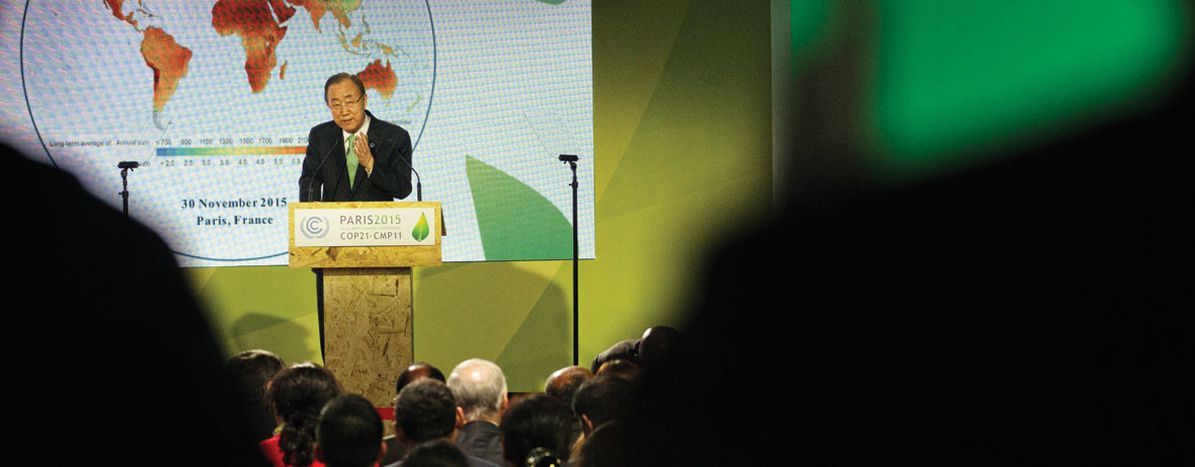
Why is Big Oil still invited to the climate negotiation table?
Published on
On the 18th of May, activist group "BP or not BP" protested against the petrol company sponsoring an exhibition at the British Museum, ironically named “Sunken Cities”. Their protest once again brings up the question of corporate influence by fossil fuel companies in the UK's public sphere. Let's put an end to Big Oil rigging climate policy. Opinion piece.
From alleged links to the Columbian paramilitary to the Deepwater Horizon oil spill, the negative track record of fossil fuel companies is clearly established when it comes to environmental impact and the harming of vulnerable populations.
What remains blurry is how Big Oil affects policy making and the democratic process closer to home. Every time suspicions of foul play arise, a convenient explanation brushes them aside, or is at least enough to take any responsibility off the company's shoulders.
The benefit of the doubt
The Guardian recently revealed a letter from BP to the EU, in which the British company threatened an "oil exodus" if the Union was to go through with certain environmental protection proposals. The proposals were effectively abandoned or weakened, but BP denies any wrongdoing, stating that the letter was intended to "highlight the risk of 'carbon leakage', where EU policy to reduce carbon emissions may result in industry relocating outside the EU, rather than achieving any actual reduction in emissions. Avoiding this perverse outcome is of critical importance to climate policy."
As Jesse Bragg, Media Director at Corporate Accountability International noted, "the tricky thing is that the industry is a little bit too smart to be that blatant about what they are doing." Even if we don't believe in the excuses put forward by BP and others, from a legal point of view at least, we're forced to give them the benefit of the doubt.
Thus, we are forced to see the fact that Europe allocates billions in subsidies to the fossil fuel industry, while slashing subsidies to clean energy, as smart policy making. The same goes for the UK's 2016 budget, which abolished the Petroleum Revenue Tax and other tax breaks for fossil fuels. As Chancellor of the Exchequer George Osborne declared in a statement, the country is simply trying to make "the most of the UK's oil and gas resources".
 If the fossil fuel industry continues spending millions on lobbying climate policy makers, we must therefore view it as out of the goodness of their hearts. If American Petroleum Institute CEO Jack Gerard, one of the world's highest paid lobbyists, received an annual compensation of just over 14 million dollars in 2013, it was probably to promote solar energy and wind turbines, rather than to push for policies favourable to his highly polluting industry. Suggesting otherwise would constitute an unfounded accusation.
If the fossil fuel industry continues spending millions on lobbying climate policy makers, we must therefore view it as out of the goodness of their hearts. If American Petroleum Institute CEO Jack Gerard, one of the world's highest paid lobbyists, received an annual compensation of just over 14 million dollars in 2013, it was probably to promote solar energy and wind turbines, rather than to push for policies favourable to his highly polluting industry. Suggesting otherwise would constitute an unfounded accusation.
Up in smoke?
The list of unfortunate coincidences will continue to grow for as long as we allow the fossil fuel industry to have access to climate policy makers. Fighting the influence of Big Oil requires taking a few lessons from how the world dealt with tobacco. In 2003, the World Health Organisation adopted the Framework Convention on Tobacco Control, and one of its key measures was to protect public health policy from interference by tobacco corporations. Excluding lobbyists from the negotiations may sound drastic, but as Jesse Bragg asks, if we are serious about breaking free from fossil fuels then "how can we let them exist in a space which is supposed to find a solution?"
The UK based non-profit Influence Map found that in 2015, over 81 million pounds were spent lobbying against climate policy. "Despite the recent Paris agreement on global warming, the fossil fuel industry is still systematically trying to stall progress, and using shareholder funds to do so," they said.
At a time when the UK, Europe and the world are struggling to meet their climate targets, this is a critical issue to address. Extreme weather events linked to climate change from Canada to Sri Lanka are already causing great damage, and should theoretically shake the world into action. Doing away with Big Oil would take us a step closer to a resolution. We must stop inviting to the negotiation table companies that Influence Map has described as being a "board member of several obstructionist trade associations, some of which give a very dubious account of climate science".



